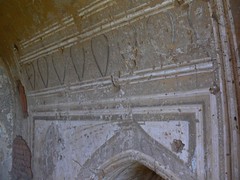Jewish holiday
Rosh Hashanah The Jewish New Year
Main article: Rosh Hashanah
According to the Talmud and oral tradition, Rosh Hashanah is the Jewish new year, day of memorial and the day of judgment, in which God judges each person individually according to their deeds, and makes a decree for the following year. The holiday is characterized by the special mitzvah of blowing the shofar. According to the Torah, however, this is the first day of the seventh month of the calendar year that marks the beginning of a ten day count to Yom Kippur.
For a variable number of days before Rosh Hashanah among Ashkenazim, and the entire month of Elul among Sephardim, special additional morning prayers are added known as Selichot.
Erev Rosh Hashanah (evening of the first day) 29 Elul
Rosh Hashanah ( )2 1 – Tishrei)
Rosh Hashanah is set aside by the Mishna as the new year for calculating calendar years, shmita and jubilee years, vegetable tithes, and tree-planting (determining the age of a tree).
According to an opinion in Jewish oral tradition, the creation of the world was completed on Rosh Hashanah. The recitation of Tashlikh occurs during the afternoon of the first day. Officially North American Reform Judaism celebrates two days of Rosh Hashanah, but a significant number of Reform congregations and members celebrate only one day; the non-Reform branches of Judaism celebrate it as a two-day holiday, both inside and outside the boundaries of Israel. The two days are considered together to be a yoma arichta, a single “long day”.
Aseret Yemei Teshuva Ten Days of Repentance
Main article: Ten Days of Repentance
The first ten days of seventh month of the Jewish year (from the beginning of Rosh Hashana until
